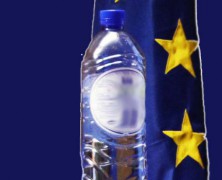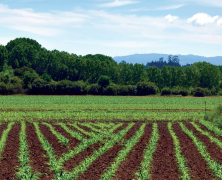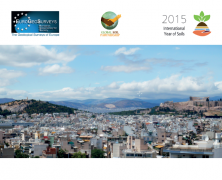A paper on European Groundwater Geochemistry has just been published in the “European Geologist”, the Journal of the European Federation of Geologists, special issue “Towards 2020: groundwater research in Europe”. Demetriades, A., Cullen, K., Reimann, C. & Birke, M., 2015. EGG: European Groundwater Geochemistry. Special Issue: Towards 2020: groundwater research in Europe, European Geologist, 40, 20-28. To download the paper, click here The full version of the Special Issue can be downloaded at http://eurogeologists.eu/wp-content/uploads/2015/11/EGJ40_final_LR.pdf...
EGG: European Groundwater Geochemistry, a model geochemical study of bottled mineral water in Europe
posted by EuroGeoSurveys
GEMAS: a review by Steve McGrath
posted by EuroGeoSurveys
A review of the GEMAS Atlas by Steve McGrath, one of the top soil scientists in Europe, on the August issue of Elements Magazine “Social and Economic Impacts of Geochemistry”. CHEMISTRY OF EUROPE’S AGRICULTURAL SOILS This two volume set (Parts A and B) arose from a project called the Geochemical Mapping of Agricultural and Grazing Land Soil in Europe (GEMAS). In this project, 2108 soil samples from ploughed land (0–20 cm depth)and 2023 samples of grazing land (0–10 cm depth) were collected in 2008/9 over an area of 5.6 million km2, at a density of about 1 per 2,500 km2. This was accomplished by a tremendous consortium of European national geological surveys, geologic institutions, academics, and industry. These groups used the same sampling protocols, with chemical analyses of all samples being carried out at specific labs. This ensured maximum comparability of the results from 33 countries across Europe. Oh, except Albania, Belarus, Malta, Moldova and Romania, which appear as blank spaces on the maps. Others outside Europe were also involved, from Australia, Canada and New Zealand. It was a truly international effort. I hear you ask, “What chemical analyses did they make on these samples?” Well, quite a lot: too many to list here, in fact. In summary: total elemental analysis for 41 elements, aqua regia extractions for 53 elements, pH, effective cation exchange capacity (eCEC), total carbon, total organic carbon, lead isotopes, magnetic susceptibility, partial extractions for 56 elements, percent clay, and solid–liquid partitioning of elements. A real data-fest! Apparently, the project is not finished: for example, Sr isotope data are now being collected. Keep reading… Download the...
The URGE II – Urban Topsoil Geochemical Mapping Manual
posted by EuroGeoSurveys
The EuroGeoSurveys Geochemistry Expert Group published “URGE II – Urban Topsoil Geochemical Mapping Manual”. The publication presents the agreed field protocol according to which all topsoil samples for the URGE II Project will be collected. The Urban Geochemistry Project (URGE II) aims to provide harmonised geochemical data about the current state of the quality of urban and suburban surface soil in European Union countries for multipurpose use. The results produced from such a survey should be of high quality and integrity, and to be legally defensible as they are very sensitive environmental health related data, because they inform us about the chemical state of our home, school, work and recreational environments, which affects our quality of life. The other objective of the URGE II Project is to compare the geochemical results of the participating European cities. Such a comparison, can be made if all participating cities follow the same sampling, sample preparation, and laboratory analysis procedures. This protocol is presented in the Manual. Subsequently, the samples will be prepared in just one central laboratory, and all topsoil samples will be analysed for the same suite of determinands in the same laboratory following a strict quality control procedure. The URGE II – Urban Topsoil Geochemical Mapping Manual is available for downloading at http://www.eurogeosurveys.org/about-us/our-products/ and on the International Year of Soils website...



